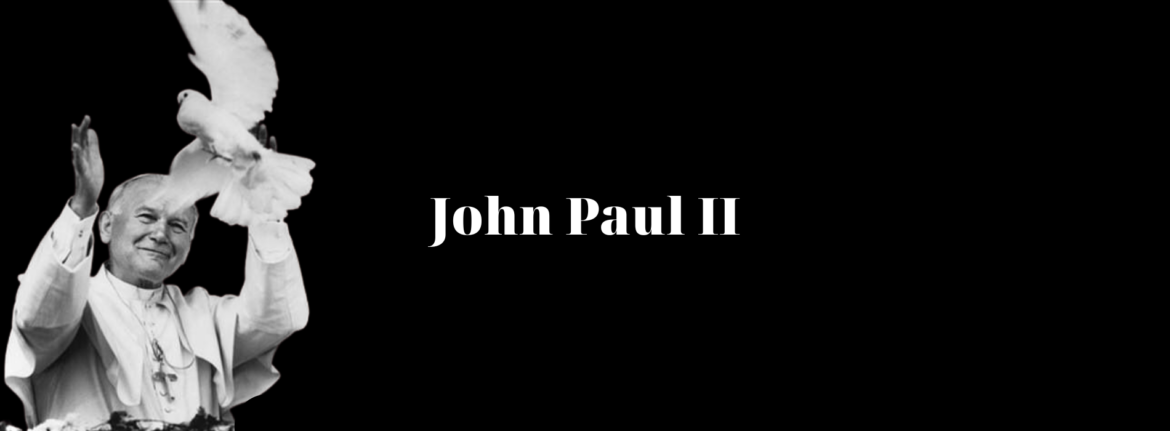Karol Józef Wojtyła, known to the world as Pope John Paul II, was one of the most influential spiritual and political figures of the 20th century. Born in Wadowice, Poland, on 18 May 1920, he became the first non-Italian pope in 455 years and a symbol of hope and resilience for millions. His papacy, spanning from 1978 to 2005, was marked by profound engagement with global issues, an unwavering commitment to faith, and a deep connection to his Polish roots.
Early Life in Poland
John Paul II’s journey began in the small town of Wadowice in southern Poland. The youngest of three children, he experienced personal loss early in life, losing his mother, Emilia, at the age of eight and his elder brother, Edmund, a few years later. His father, Karol Wojtyła Sr., a retired army officer, became a guiding force, instilling in him discipline and a strong Catholic faith.
During his youth, Wojtyła displayed a talent for academics, athletics, and the arts, particularly theatre. However, the outbreak of World War II disrupted his studies at the Jagiellonian University in Kraków. Forced into hard labour under Nazi occupation, Wojtyła simultaneously pursued underground theological studies.
In 1946, he was ordained a priest and began a career that combined pastoral work with academic pursuits. His intellectual curiosity led him to earn a doctorate in theology and explore philosophy, particularly ethics, which he later taught at Catholic universities in Lublin and Kraków.
Becoming Pope
Wojtyła’s ascent within the Catholic Church was swift. In 1958, he was appointed Auxiliary Bishop of Kraków, and in 1964, he became the Archbishop of Kraków. His leadership during the Second Vatican Council (1962–1965) earned him recognition as a forward-thinking clergyman who sought to modernise the Church while upholding its traditions.
On 16 October 1978, Wojtyła was elected as Pope, taking the name John Paul II. His election was historic, making him the first Slavic pope and a figure of immense significance for Poland and the entire Eastern Bloc during the Cold War.
A Pontificate of Transformation
John Paul II’s nearly 27-year-long papacy was characterised by his global reach, moral authority, and ability to inspire people of all faiths. He made 104 international trips, including groundbreaking visits to nations where Catholicism was a minority religion. His efforts to foster interfaith dialogue, particularly with Judaism and Islam, reflected his commitment to peace and mutual understanding.
A staunch advocate for human rights, John Paul II played a pivotal role in the fall of communism in Central and Eastern Europe. His first pilgrimage to Poland in 1979 is widely regarded as a turning point in the country’s struggle for freedom. Addressing crowds of millions, he inspired Poles to reclaim their dignity and unity under the banner of Solidarity (Solidarność), a movement that eventually led to the collapse of communist rule.
Legacy in Theology and Society
John Paul II was a prolific writer and thinker, producing encyclicals, apostolic letters, and books that addressed theological, social, and ethical issues. He championed the sanctity of life, emphasising the importance of family, the value of work, and the need for compassion in a rapidly changing world.
Among his most notable contributions was his role in redefining the Church’s stance on science, economics, and human dignity. He openly apologised for past Church mistakes, such as the treatment of Galileo and its historical role in antisemitism, striving to foster reconciliation.
Connection to Poland
Despite his global responsibilities, John Paul II’s connection to Poland remained profound. His visits to his homeland, often marked by moving speeches and public masses, reinforced the nation’s Catholic identity and cultural pride. His words, such as „Niech zstąpi Duch Twój i odnowi oblicze ziemi, tej ziemi” („Let Your Spirit descend and renew the face of the earth, this earth”), became rallying cries for change and hope.
Final Years and Canonisation
John Paul II’s later years were marked by health struggles, including Parkinson’s disease, yet he continued his work with unwavering dedication. His passing on 2 April 2005 was met with worldwide mourning, with millions gathering in Vatican City to pay their respects.
In 2014, he was canonised by Pope Francis, affirming his lasting impact on the Church and the world. Today, his teachings, writings, and legacy remain central to Polish identity and global Catholicism.
An Enduring Influence
John Paul II’s life was a testament to faith, resilience, and the power of moral leadership. For Poland, he symbolised the enduring strength of its culture, history, and spirituality. For the world, he was a beacon of hope, reminding humanity of its potential for compassion, unity, and renewal.
